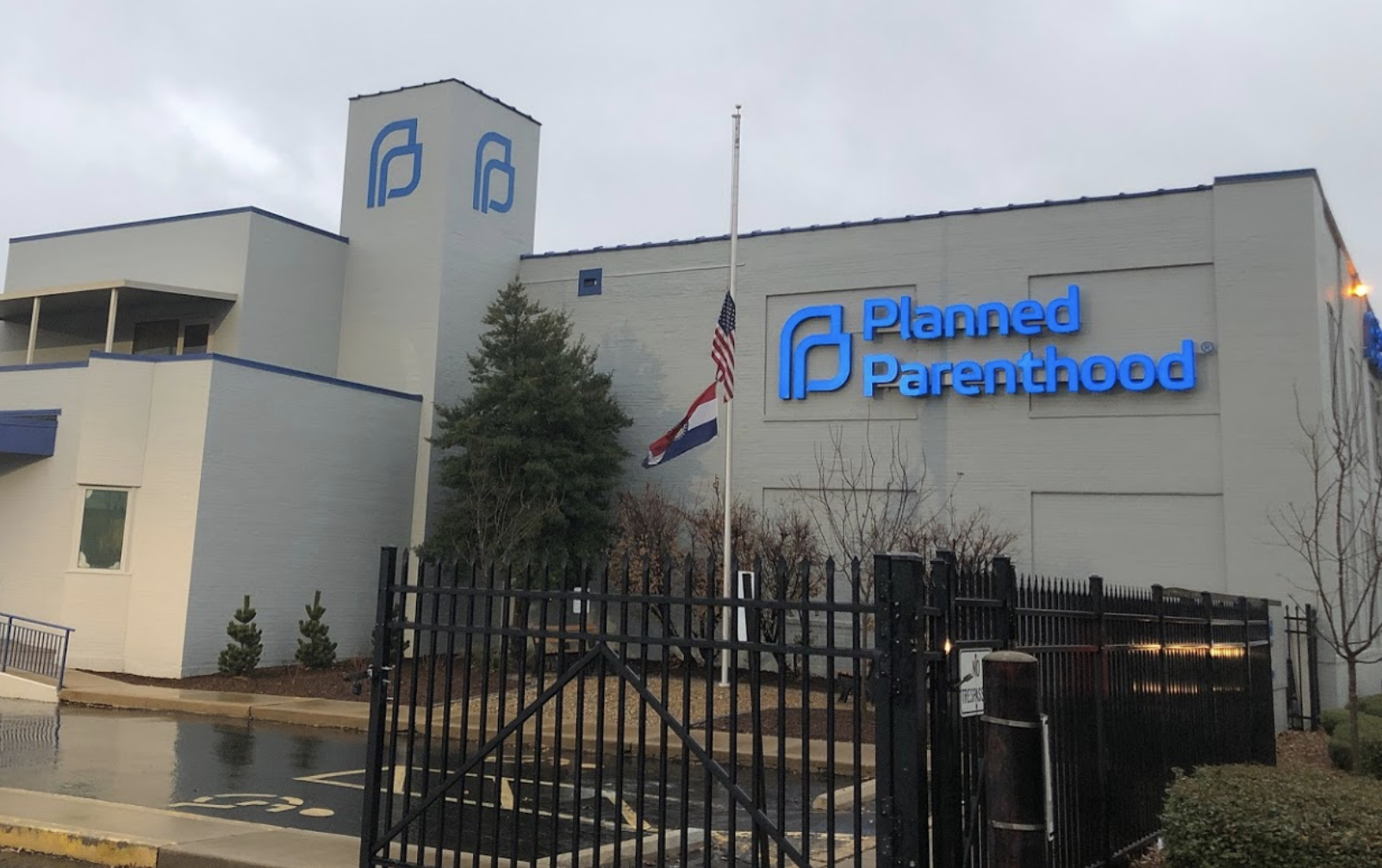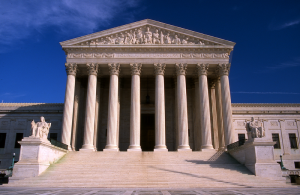Missouri’s new abortion law — placing restrictions at eight weeks — was set to go into effect Wednesday until a federal judge stymied parts of its implementation.
U.S. District Judge Howard Sachs placed a temporary restraining order on the law Tuesday “pending litigation or further order of the court.” He sided with the plaintiffs in the suit — which included Planned Parenthood and the ACLU — in the argument that the law stood in contrast with the U.S. Supreme Court’s decision regarding viability of a fetus.
“However formulated, the legislation on its face conflicts with the Supreme Court ruling that neither legislative nor judicial limits on abortion can be measured by specified weeks of devleopment of a fetus; instead, ‘viability’ is the sole test for a State’s authority to prohibit abortions where there is no maternal health issue,” Sachs said in his order.
The state is able to appeal the order.
“Like attorneys general who came before him, Attorney General Eric Schmitt is tasked with defending the laws of the state and is dedicated to protecting Missourians, born and unborn. We’re currently reviewing the judge’s order and are deciding on next steps,” Chris Nuelle, a spokesperson for Missouri’s attorney general, said in a statement.
“On a separate note, as the father of a child with special needs, Attorney General Schmitt is particularly sensitive to suggestions that an unborn child who will have special needs is any lesser of a human being, and we’re glad that provisions relating to that issue were left in place in the judge’s ruling today.”
Gov. Mike Parson, too, said his administration is looking “forward to litigating the remaining issues.”
“We sent a strong message that Missouri stands for life, protection of women’s health, and advocates for the unborn with the passage and signing of HB 126,” Parson said. “As Governor, I am honored to lead a state that is committed to standing up for those without a voice and will continue to fight for the unborn.”
HB 126 banned abortions after eight weeks except in the case of a medical emergency. It included “nestled” components — designed to withstand court challenges — with restrictions at 14, 18, and 20 weeks. It also would ban abortions outright should the landmark U.S. Supreme Court decision in Roe v. Wade be overturned.
Out of the 2,910 abortions performed in Missouri in 2018, 1,210 were pregnancies terminated at eight weeks or less, according to statistics from Department of Health and Senior Services. In 2017, 3,903 abortion procedures occured; 1,673 were at eight weeks or less.
Sachs said even the 20-week restriction would cause “significant interference with plaintiffs’ service and the rights of its prospective patients, so it should be considered quite adequate as harm to justify immediate relief from the defective provisions of House Bill 126.”
“I am not surprised the Western District, where [the] plaintiffs chose to file this lawsuit, granted a temporary injunction on only a portion of HB 126. While this legislation was drafted to withstand judicial challenges rather than cause them, including guidance from abortion jurisprudence since Roe v. Wade, we will wait for the judicial and appellate process to play out,” Republican Rep. Nick Schroer, who championed HB 126, told The Missouri Times.
The law did not include exceptions for rape or incest victims, which angered some Republicans.
Additionally, the law does not allow for abortions based on race, sex, or a diagnosis of Down syndrome. Sachs allowed that provision to remain intact — at least for now. He said there was no significant data to show whether “the inability to schedule ‘Down syndrome abortions’ would be likely to interfere with the abortion rights of real-life women.”
“While most people seeking abortion will thankfully still be able to do so, allowing the reason ban to take effect will have a measurable impact. It requires physicians to interrogate patients and, in turn, destroys the foundation of trust essential in a health care setting,” Dr. Colleen McNicholas, chief medical officer of the Planned Parenthood clinic in St. Louis, said.
“Missourians do not need or want politicians in their exam rooms. My patients deserve access to high-quality abortion care, and they deserve the space to make those decisions based on their values, life circumstances, support system, and faith, free of government scrutiny. Although we are grateful today’s ruling allows us to provide care to some Missourians, we will continue to defend the truth: EVERY reason to have an abortion is a valid reason.”
Democratic Sen. Jill Schupp, a vocal critic of HB 126 during debate in the General Assembly, called the judge’s actions “good news for Missouri women” but said the “fight is not over.”
“There are more legal challenges [and] hurdles ahead,” Schupp told The Missouri Times in a text message. “In the meantime, we must start electing people who TRUST WOMEN. There are special elections in November of this year and a big election next year. We have work to do!”
Missouri only has one facility, in St. Louis, with the ability to provide abortion services in the state.
Aside from the so-called “reason ban,” other provisions of HB 126 were also allowed to go into affect, including the modification of the definition of pregnancy resource centers, according to the Governor’s Office.
Already, a provision of the law — a requirement for both parents of a minor to be notified should she seek an abortion — is in place as it was an emergency clause.

Kaitlyn Schallhorn was the editor in chief of The Missouri Times from 2020-2022. She joined the newspaper in early 2019 after working as a reporter for Fox News in New York City.
Throughout her career, Kaitlyn has covered political campaigns across the U.S., including the 2016 presidential election, and humanitarian aid efforts in Africa and the Middle East.
She is a native of Missouri who studied journalism at Winthrop University in South Carolina. She is also an alumna of the National Journalism Center in Washington, D.C.
Contact Kaitlyn at kaitlyn@themissouritimes.com.
















